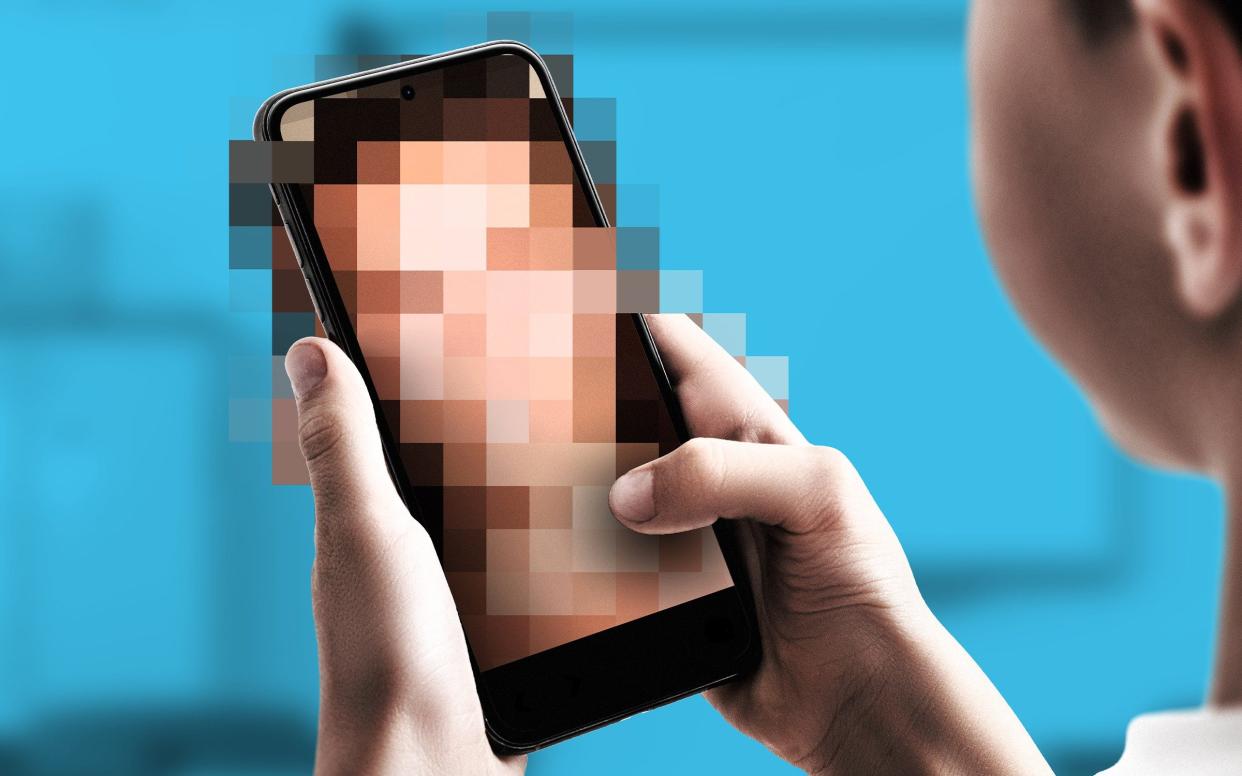Society is obsessed with trigger warnings – yet somehow, our children can still access porn

It feels like another world. Twenty years ago, when I was starting out in journalism, I worked for a lads’ mag called Zoo. Our target audience – men aged 18-30 – seemed to like it. Everyone else, however, loathed it.
MPs were constantly demanding that newsagents place Zoo, and indeed all other lads’ mags, on the top shelf, or seal them inside opaque “modesty bags”. Why? Because, alongside all the articles about football and Little Britain and The Top 100 Most Hilarious Stand-Up Jokes Ever, these magazines would run photo shoots with Page 3 girls, or Big Brother contestants in bikinis.
I can’t deny that lads’ mags were cheap, tacky and sexist. Nonetheless, it does feel odd, looking back at the sheer volume of fuss they caused. These days, after all, everyone with an internet connection has constant, unrestricted access, free of charge, to every conceivable form of hardcore pornography. In comparison, Zoo looks hopelessly tame. Quaint. Modest, even. Like a cheeky seaside postcard from the 1950s, or an episode of Benny Hill.
Our readers evidently thought so. That’s why Zoo, and the rest of the lads’ mags, soon went bust. Young men decided that they much preferred the infinitely racier content they could find online. The trouble is, though, it’s not just young men who are watching it. It’s children, too. And, as a parent, that terrifies me. Especially after the shocking statistic I learnt last week.
In this country, one in 10 children has watched online porn by the age of nine. Seriously. Nine. That shook me. My own son turns nine next month. For his birthday, he’s asked for a cuddly toy seal, and a piggy bank shaped like a cat. That’s how innocent nine-year-olds are. Or at least, how innocent they’re meant to be.
To be clear, my son doesn’t have a phone, and we strictly monitor his use of the little Samsung tablet he plays games on. So he can’t have seen anything he shouldn’t. Soon enough, though, his friends will start getting phones. These days, practically all children seem to be given them in time to start secondary school, at the age of 12. And then what are we going to do? I suppose I can only pray that, by then, Parliament will have seen sense – and learnt a lesson from the French.
It was announced this week that in September, France will become the first country in the world to require anyone seeking to watch online porn to hold a special “digital certificate”. It includes proof of age. So for anyone under the age 18, they won’t be able to gain access.
What an excellent idea. In a way, though, it’s quite a twist. If I’d had to guess which country would end up leading the way in the campaign against sexual depravity, I’m fairly sure I wouldn’t have gone for France. Sex is the only thing they enjoy more than striking. In fact, perhaps that’s the real reason they keep walking out of work. They’ve got something else they’d rather be doing.
When it comes to keeping children safe online, though, they’ve definitely got it right. Here in Britain, meanwhile, our MPs appear to be stuck in a never-ending row over the Government’s Online Safety Bill. Time to stop squabbling, and just follow the French. You’d think it would be a matter of the greatest possible urgency. But seemingly not. Which is confusing – especially in an age like ours.
As a country, it seems we’ve got our priorities muddled. Almost every day we read of universities adding trigger warnings to classic novels, for fear that their use of politically incorrect language could traumatise the poor students. And this week, preposterously, the Globe added a warning to its new production of A Midsummer Night’s Dream – solemnly informing prospective audiences that Shakespeare’s 428-year-old romantic comedy contains “misogyny and racism”. Yet, at the same time, nothing is being done to prevent a little boy or girl of primary school age from gaining access to hardcore porn.
It’s a peculiar world. We go to desperate lengths to protect the most pathetically over-sensitive adults. Yet we do next to nothing to protect small children.

